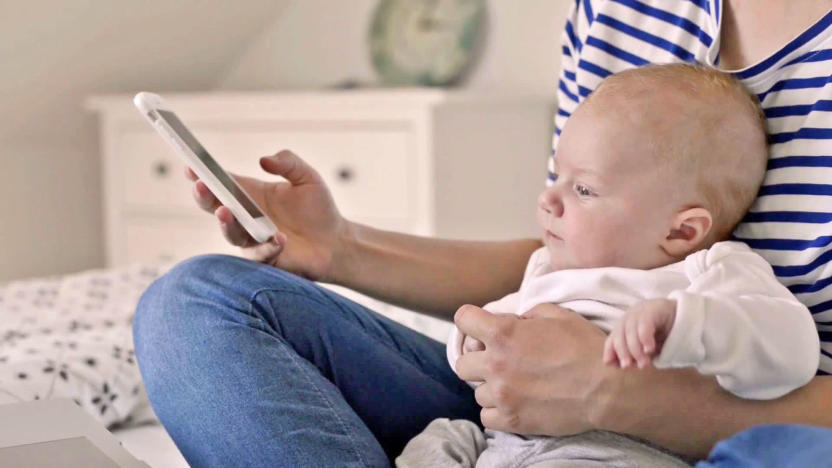SleepPatterns
Latest

Toddlers who use touchscreens sleep less, study says
Toddlers really need their sleep. It's crucial when our brains are first developing, so early problems can ripple across your lifetime. That makes a report by Birbeck University of London researchers somewhat disturbing -- they found that toddlers between six and 11 months who play with smartphones or tablets get slightly less sleep than those who don't. According to the study of 715 parents, every hour of touchscreen use results in 15.6 minutes less sleep, or 26.4 minutes less total per night and 10.8 minutes more during the day, on average.

Re-Timer could play with your brain, fool body clock to minimize jetlag
Jetlag and disrupted sleep patterns are conditions we're all too familiar with, right along with flashing lights that claim to remedy them. A new wearable device, tagged Re-Timer, also promises to be of help by mimicking sunlight and resetting the body clock. Reportedly the result of 25 years of sleep research at Australia's Flinders University, it's worn like a pair of glasses and emits soft green light, fooling the part of the brain that regulates your circadian rhythms. When used at different times of the day for specified durations, it claims to advance or delay the clock as desired -- countering the effects of frequent air travel and improving alertness levels. The rechargeable, portable device is safer and more effective than medication, according to its chief inventor Professor Leon Lack. If nothing else, the $260 visor is a bold fashion statement, although it may not be as cool as having robots convert your dreams into art.

Ibis hotels to have robots paint art while they track your sleep: no, that's not creepy at all (video)
First they invaded our factories, and now it's our hotel rooms. Is nowhere safe from the robots? In truth, Ibis' upcoming Sleep Art project is very slick, even if it smacks of robot voyeurism. Ibis hotels in Berlin, London and Paris will let 40 successful applicants sleep on beds that each have 80 sensors translating movements, sound and temperature into truly unique acrylic paintings by robotic arms connected through WiFi. You don't have to worry that the machines are literally watching you sleep -- there's no cameras or other visual records of the night's tossing and turning, apart from the abstract lines on the canvas. All the same, if you succeed in landing a stay in one of the Sleep Art hotel rooms between October 13th and November 23rd, you're a brave person. We all know how this ends.

Visualized: life's most basic patterns displayed as color-coded charts
You wake. You eat. You work. You read a few articles on Engadget. You sleep. You attempt to repeat. Life's not always quite so simple, but the mesmerizing image shown above does a great job of showcasing the patterns that seem to keep us all on track. This particular piece is entitled Sleep Patterns, crafted by one Laurie Frick, and was created by converting EEG traces into watercolor. There's plenty more where this came from in the source link below, but we'd caution you not to fall into some sort of eternal loop of checking back daily -- unless, of course, you're looking to disrupt your own patterns for the sake of art.



